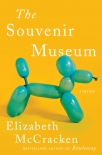An American Tragedy, Theodore Dreiser [best business books of all time txt] 📗

- Author: Theodore Dreiser
Book online «An American Tragedy, Theodore Dreiser [best business books of all time txt] 📗». Author Theodore Dreiser
“I don’t know unless she thought she could make me, maybe,” replied Clyde, the while various backwoodsmen and farmers and jurors actually sniffed and sneered, so infuriated were they by the phrase “make me” which Clyde had scarcely noticed. “I never agreed to.”
“Unless she could make you. So that was the way you felt about it, was it, Griffiths?”
“Yes, sir.”
“You’d swear to that as quick as you would to anything else?”
“Well, I have sworn to it.”
And Mason as well as Belknap and Jephson and Clyde himself now felt the strong public contempt and rage that the majority of those present had for him from the start—now surging and shaking all. It filled the room. Yet before him were all the hours Mason needed in which he could pick and choose at random from the mass of testimony as to just what he would quiz and bedevil and torture Clyde with next. And so now, looking over his notes—arranged fan-wise on the table by Earl Newcomb for his convenience—he now began once more with:
“Griffiths, in your testimony here yesterday, through which you were being led by your counsel, Mr. Jephson” (at this Jephson bowed sardonically), “you talked about that change of heart that you experienced after you encountered Roberta Alden once more at Fonda and Utica back there in July—just as you were starting on this death trip.”
Clyde’s “yes, sir,” came before Belknap could object, but the latter managed to have “death trip” changed to “trip.”
“Before going up there with her you hadn’t been liking her as much as you might have. Wasn’t that the way of it?”
“Not as much as I had at one time—no, sir.”
“And just how long—from when to when—was the time in which you really did like her, before you began to dislike her, I mean?”
“Well, from the time I first met her until I met Miss X.”
“But not afterwards?”
“Oh, I can’t say not entirely afterwards. I cared for her some—a good deal, I guess—but still not as much as I had. I felt more sorry for her than anything else, I suppose.”
“And now, let’s see—that was between December first last say, and last April or May—or wasn’t it?”
“About that time, I think—yes, sir.”
“Well, during that time—December first to April or May first you were intimate with her, weren’t you?”
“Yes, sir.”
“Even though you weren’t caring for her so much.”
“Why—yes, sir,” replied Clyde, hesitating slightly, while the rurals jerked and craned at this introduction of the sex crime.
“And yet at nights, and in spite of the fact that she was alone over there in her little room—as faithful to you, as you yourself have testified, as anyone could be—you went off to dances, parties, dinners, and automobile rides, while she sat there.”
“Oh, but I wasn’t off all the time.”
“Oh, weren’t you? But you heard the testimony of Tracy and Jill Trumbull, and Frederick Sells, and Frank Harriet, and Burchard Taylor, on this particular point, didn’t you?”
“Yes, sir.”
“Well, were they all liars, or were they telling the truth?”
“Well, they were telling the truth as near as they could remember, I suppose.”
“But they couldn’t remember very well—is that it?”
“Well, I wasn’t off all the time. Maybe I was gone two or three times a week—maybe four sometimes—not more.”
“And the rest you gave to Miss Alden?”
“Yes, sir.”
“Is that what she meant in this letter here?” And here he took up another letter from the pile of Roberta’s letters, and opening it and holding it before him, read: “ ‘Night after night, almost every night after that dreadful Christmas day when you left me, I was alone nearly always.’ Is she lying, or isn’t she?” snapped Mason fiercely, and Clyde, sensing the danger of accusing Roberta of lying here, weakly and shamefacedly replied: “No, she isn’t lying. But I did spend some evenings with her just the same.”
“And yet you heard Mrs. Gilpin and her husband testify here that night after night from December first on Miss Alden was mostly always alone in her room and that they felt sorry for her and thought it so unnatural and tried to get her to join them, but she wouldn’t. You heard them testify to that, didn’t you?”
“Yes, sir.”
“And yet you insist that you were with her some?”
“Yes, sir.”
“Yet at the same time loving and seeking the company of Miss X?”
“Yes, sir.”
“And trying to get her to marry you?”
“I wanted her to—yes, sir.”
“Yet continuing relations with Miss Alden when your other interests left you any time.”
“Well … yes, sir,” once more hesitated Clyde, enormously troubled by the shabby picture of his character which these disclosures seemed to conjure, yet somehow feeling that he was not as bad, or at least had not intended to be, as all this made him appear. Other people did things like that too, didn’t they—those young men in Lycurgus society—or they had talked as though they did.
“Well, don’t you think your learned counsel found a very mild term for you when they described you as a mental and moral coward?” sneered Mason—and at the same time from the rear of the long narrow courtroom, a profound silence seeming to precede, accompany and follow it—yet not without an immediate roar of protest from Belknap, came the solemn, vengeful voice of an irate woodsman: “Why don’t they kill the Goddamned bastard and be done with him?”—And at once Oberwaltzer gaveling for order and ordering the arrest of the offender at the same time that he ordered all those not seated





Comments (0)